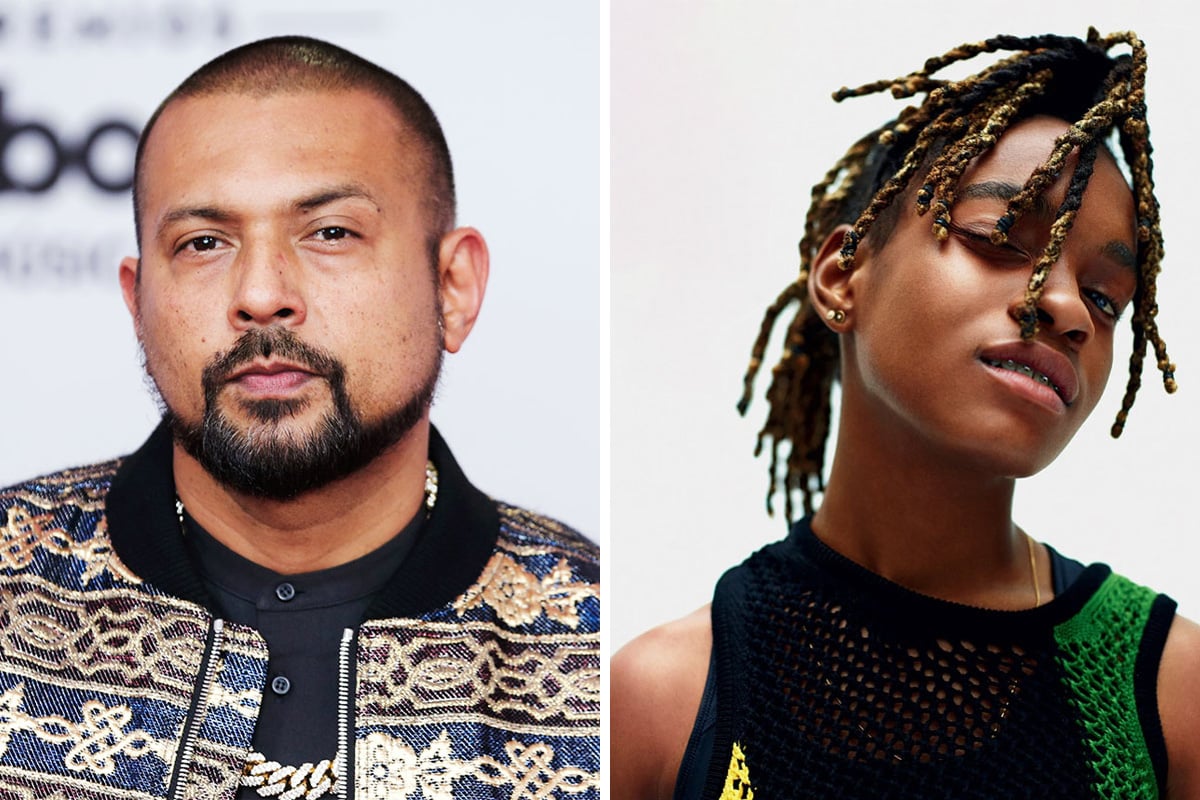Sean Paul Describes Koffee’s Music As Amazing, But Patois Language Barrier Still Remains

Dancehall superstar Sean Paul is insisting that many Dancehall acts have not been able to have cross-over hit songs, due to a vast section of the global music audience not being able to understand Patois.
According to Sean, this is not a fault of anyone, but just happens to be the harsh reality, in a world where only a relatively minute number of people speak or understand the Jamaican vernacular, when compared to languages such as English and Spanish.
The Temperature artist was responding to questions posed by Television Jamaica’s entertainment journalist Anthony Miller on the Entertainment Report, about why his compatriot Koffee, has not “been able to translate commercially” and “if she can’t cross over to a wider audience, who is going to out of Jamaica?”
“I think it is unfair to say she hasn’t crossed over because of the way how stream[ing] is right now or the way how music is selling right now. She has amazing melodies and the style of stuff that she is putting together, the pattern or the flow, plus the lyrics, is dope. Whether it be that it is a little technical for people on the outside to get that’s another problem that we all have in this genre,” Sean Paul said.
“Reggaeton, is Spanish they talkin and Spanish is one of the biggest spoken languages on this earth, suh we do have a barrier; we have always had it and I never said that Patois was a wrong ting. I have always said that that’s the reason why a lot of us don’t translate,” the Grammy Award-winning deejay said.
He added: “When Koffee sing about Lockdown , I think that song is self-explanatory and is very understandable to people, but you have some people out there that don’t understand it; they just don’t.”
Sean Paul’s statements come close to two years after he was upbraided by many Jamaicans after an article was published by the BBC in early July 2019 titled Sean Paul: ‘Language barrier’ a problem for dancehall artists , which quoted him as saying that “a ‘language barrier’ is one of the reasons his dancehall compatriot “fail to make it big in the UK and US”.
“He believes it’s hard for some people to understand “hardcore patois” – which is a mixture of several languages, including English, spoken in Jamaica,” the BBC had written, noting that “very few dancehall artists manage to break into the main UK and US music charts” and that “Sean Paul thinks part of the reason is down to the way some Jamaicans speak”.
“I’m able to speak in a little tongue where someone can understand me… Sometimes a lot of people still gravitate towards my music and say ‘I don’t understand what you’re saying’ but they get the gist of it. People speaking in hardcore patois, it’s kind of hard for people to understand so that’s a big factor,’ the BBC had quoted Paul as saying.
A few weeks later in an interview with The Gleaner newspaper, Sean Paul had said that his stating that the use of “hardcore Patois” has made it difficult for global audiences to understand Jamaica’s music was regrettably misinterpreted, that he “would never change Patois in dancehall” and that “there is no cutting it, especially for a deejay”.
The Kingstonian had also said that “there is always a language barrier for the global musical genres, but when I use the word ‘barrier’, I don’t mean it to say that it is a bad thing”.
“I love our native speech. I sing most of my songs in Patois, and I express myself that way every day to friends and family. Growing up in Jamaica, there is no going around that,” he declared.
His compatriot Charly Black who has grown in popularity in the Latin market with his 2013 breakthrough Dancehall single Gyal You A Party Animal , which was recorded in raw Patois, had also said that based on his experience, “the connection with international audiences is made slowly but surely, and learning other languages may not make a difference”.
“I have never had to translate lyrics to the international audience. The focus, for me, has always been on how a song is delivered; a Dancehall artiste can sing on a Hip-Hop beat but still sound authentic,” the Trelawny native had told The Gleaner.
Queen Ifrica had also told the newspaper that Patois has been the reason Jamaican music crossed over in the first place, evident in the fact that in sections of Europe it was normal for her to “hear people of other races and birthplaces speak patios without having travelled to Jamaica because the music teaches them”.
Copeland Forbes, a past manager and booking agent for some of Reggae’s biggest icons including Bob Marley, Peter Tosh, Bunny Wailer, Third World, and Gregory Isaacs, had also said that Jamaican Patois should not be seen as a barrier.
“Barrier’ is probably seen as too strong a word. Language is not really a barrier in music, but it can play a great role in stopping certain things that artistes and the industry deem as important to one’s career from happening,” Forbes had said, noting that these include making it on the US Billboard Hot 100 Chart, which, in many cases, acts as a determining factor in the music getting airplay on some overseas radio stations.
“It is harder to get on that chart if the people compiling the lists can’t understand the lyrics, and for the major radio stations, the programme directors are extremely cautious with the music that is aired, so it is a challenge if the language is not easily interpreted,” he had said.
